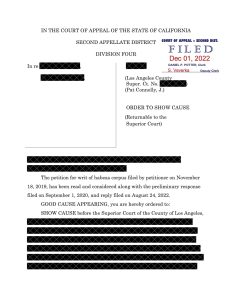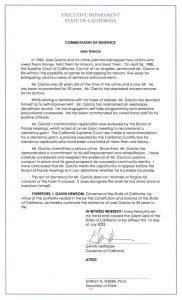The California Board of Parole Hearings, commonly known as the Board of Parole or BPH, is the division of the California Department of Corrections and Rehabilitation that is responsible for determining parole suitability for inmates in California. The Board holds hearings for inmates who are serving indeterminate sentences, such as life in prison with the possibility of parole or 25 years to life in prison. The BPH conducts hearings where inmates can present their cases for release, and victims or their families can also provide input. This Board’s role is to assess whether inmates are ready to be released back into society based on factors like their behavior in prison, rehabilitation efforts, and the nature of their crimes. The Board’s decisions are influenced by various factors, including public safety, the inmate’s own insight into their crimes, and their plans for reintegration into the community.
These hearings, often referred to as “lifer hearings,” are absolutely critical for anyone serving an indeterminate life sentence. Read on to learn more about the BPH, the factors the Board considers during lifer hearings, and why it is important to work with a renowned Los Angeles criminal appeals lawyer throughout the BPH process.
 Los Angeles Criminal Defense and Appeals Lawyer Blog
Los Angeles Criminal Defense and Appeals Lawyer Blog



 In 2019, SB 1437 was enacted, amending Penal Code § 188 and § 189 and creating Penal Code § 1170.95. Pursuant to SB 1437, accomplice liability for felony murder and murder by way of the natural and probable consequence doctrine was substantially changed, allowing individuals convicted to seek to vacate their murder convictions and obtain resentencing relief. Resentencing is available for individuals convicted of murder, attempted murder, and/or manslaughter if they demonstrate:
In 2019, SB 1437 was enacted, amending Penal Code § 188 and § 189 and creating Penal Code § 1170.95. Pursuant to SB 1437, accomplice liability for felony murder and murder by way of the natural and probable consequence doctrine was substantially changed, allowing individuals convicted to seek to vacate their murder convictions and obtain resentencing relief. Resentencing is available for individuals convicted of murder, attempted murder, and/or manslaughter if they demonstrate:









